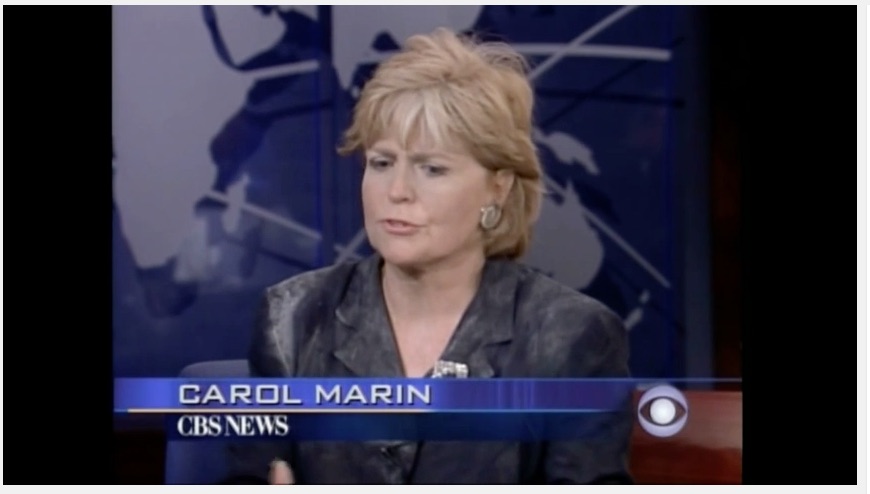The following is excerpted from my blog post of September 8, 2011 on TimeOutChicago.com:
September 11, 2001, profoundly affected broadcast journalists who covered the terrorist attacks that day. But 10 years later, Carol Marin looks back with regret that television news so quickly lost the sense of life-or-death seriousness it conveyed to a shocked and grieving nation.
“I thought we distinguished ourselves in those days following 9/11,” Marin said in an interview this week. “We had been given a sobering lesson in what our real purpose and mission is. This is what news was built for — to be the link between people hungry to know what was happening and why.”
Marin was a 52-year-old correspondent for CBS News working on a piece for "60 Minutes" in New York when she saw the World Trade Center attack on television. Almost instinctively, she rushed to the scene and found herself just blocks away when the first tower began falling. As she turned to run, a firefighter scooped her up and shielded her from the deadly cloud of smoke and debris rushing toward them.
Miraculously, Marin made her way back to the CBS Broadcast Center, her navy blue suit covered in soot, and told her harrowing story to Dan Rather and the world. Marin didn’t get back to her hotel that day until after midnight.
“I’m troubled talking about it because I was the one who was saved,” she reflected. “I didn’t save anybody, and I didn’t get the name of the firefighter who saved me. But at the same time, if it happened all over again, I’d do the same thing. It’s what we do. We report.”
Marin, now a columnist for the Chicago Sun-Times, political editor of NBC Chicago and a contributing anchor for WTTW’s Chicago Tonight, saw the economics of the media business quickly overtake the ethos of the moment.
“We’ve seen steady shrinkage of the very delivery system that was so distinguished on 9/11,” she said. “Not so long after that, there were further cutbacks, further foreign bureaus closed up. The fact is that news budgets continue to decline. Cable segmentation brought about many more competitors. The Internet blew up into a giant mushroom of new ways for people to get information. So there were lots of prevailing winds that blew away that sober, highly intentioned news coverage of 9/11.
“Today there are fewer crews on the street, and more media handouts taking the place of reporting. Nationally a lot of newscasts look just the same as every other newscast.”


